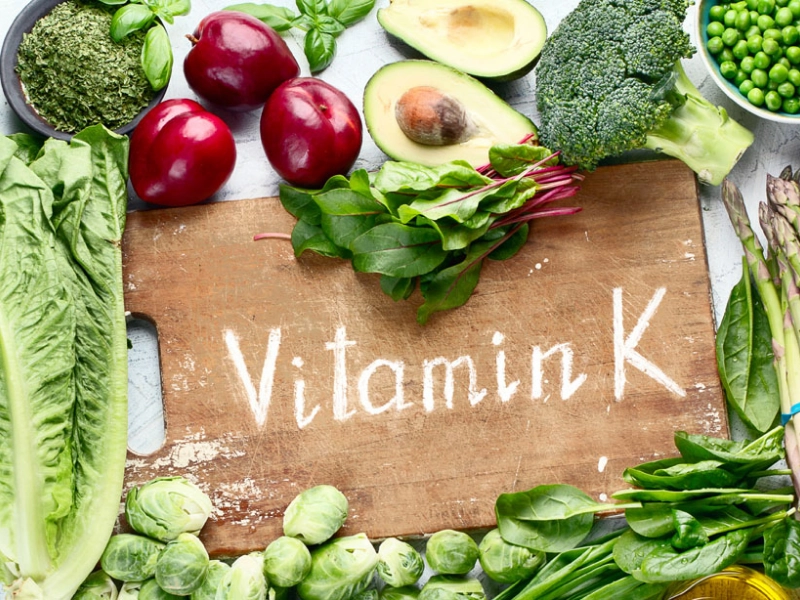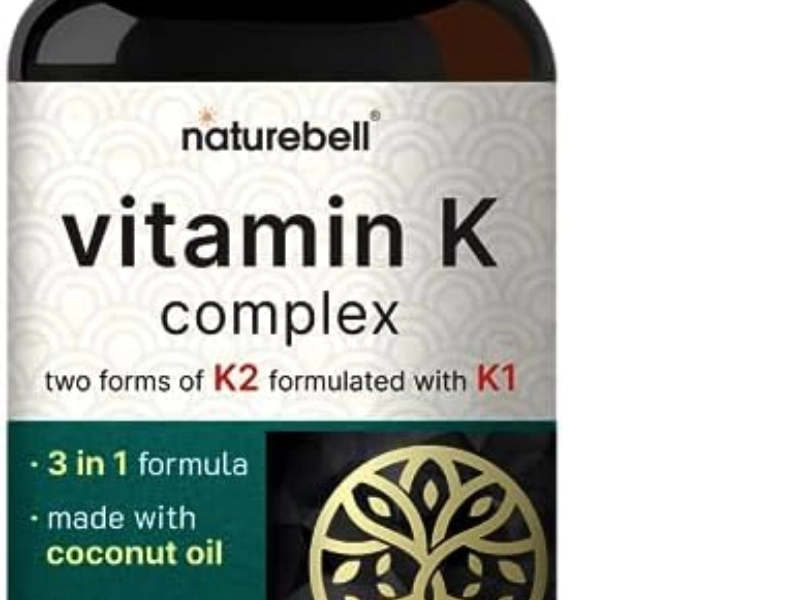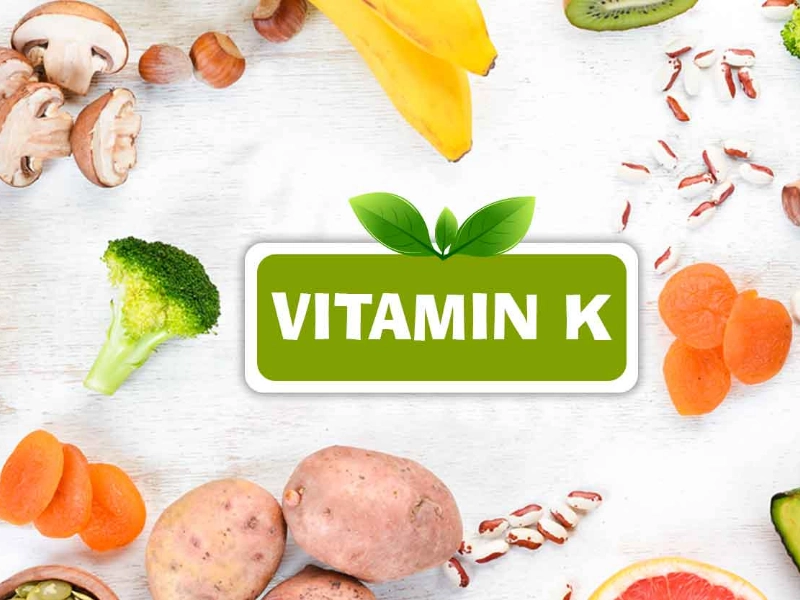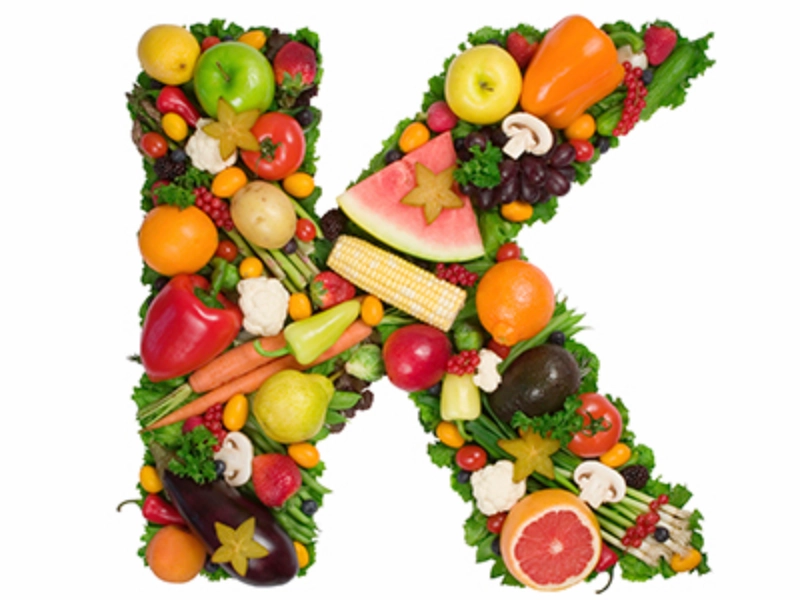Vitamin K plays several vital roles for cardiovascular and bone health, much like a jigsaw puzzle piece. It is well-known for aiding in blood clotting and enhancing calcium absorption, both of which promote healthy bones. It also has a role in cell proliferation, neuronal system biochemistry, and vascular calcification. Therefore, even though this nutrient may be an unsung hero, a deficit should not be disregarded.

 High-intensity physical activity frequently raises the need for essential nutrients, such as vitamin K. Nonetheless, athletes are susceptible to deficiencies, particularly those who adhere to tight or particular diets.
Among its various functions, vitamin K is essential for healthy bones and blood coagulation. It produces four of the thirteen proteins required for coagulation, which enables your body to halt bleeding and mend wounds. By activating a protein called osteocalcin, which guides calcium to the necessary areas of the bones, it also aids in the development of strong bones.
There are two types of vitamin K: menaquinones (K2) and phylloquinone (K1). Verdant green vegetables are the most often consumed dietary sources of vitamin K. When phylloquinone is eaten, bacteria in the large intestine transform it into Vitamin K2, which is a more potent version of the vitamin. Additionally, several fermented and animal-based foods naturally contain menaquinones. These vitamins are soluble in fat. They never get to dangerous levels since they degrade fast and are eliminated from the body through faeces or urine.
High-intensity physical activity frequently raises the need for essential nutrients, such as vitamin K. Nonetheless, athletes are susceptible to deficiencies, particularly those who adhere to tight or particular diets.
Among its various functions, vitamin K is essential for healthy bones and blood coagulation. It produces four of the thirteen proteins required for coagulation, which enables your body to halt bleeding and mend wounds. By activating a protein called osteocalcin, which guides calcium to the necessary areas of the bones, it also aids in the development of strong bones.
There are two types of vitamin K: menaquinones (K2) and phylloquinone (K1). Verdant green vegetables are the most often consumed dietary sources of vitamin K. When phylloquinone is eaten, bacteria in the large intestine transform it into Vitamin K2, which is a more potent version of the vitamin. Additionally, several fermented and animal-based foods naturally contain menaquinones. These vitamins are soluble in fat. They never get to dangerous levels since they degrade fast and are eliminated from the body through faeces or urine.
 Vitamin K may not be as well-known as other vitamins, but it plays a crucial role in your athletic performance, much like the unsung hero on a winning team. It is essential for bone health, blood coagulation, and cardiovascular health.
For instance, in order to halt the bleeding and start the healing process, your body must swiftly build a blood clot if you are hurt playing sports. Vitamin K2 guarantees that the proteins involved in blood clotting function correctly and aids in blood clotting.
Together with vitamin D, vitamin K2 helps to build calcium in bones, keeping them robust for strenuous activity. You can lower your risk of osteoporosis and cardiovascular disease by consuming adequate vitamin K2.
Foods high in cruciferous vegetables (broccoli, cauliflower, and cabbage) and fermented foods (like sauerkraut) are good sources of both vitamins K1 and K2. Additionally, some dairy products and breakfast cereals that have been fortified include it. Phylloquinone's absorption from diet is, however, little documented.
Vitamin K may not be as well-known as other vitamins, but it plays a crucial role in your athletic performance, much like the unsung hero on a winning team. It is essential for bone health, blood coagulation, and cardiovascular health.
For instance, in order to halt the bleeding and start the healing process, your body must swiftly build a blood clot if you are hurt playing sports. Vitamin K2 guarantees that the proteins involved in blood clotting function correctly and aids in blood clotting.
Together with vitamin D, vitamin K2 helps to build calcium in bones, keeping them robust for strenuous activity. You can lower your risk of osteoporosis and cardiovascular disease by consuming adequate vitamin K2.
Foods high in cruciferous vegetables (broccoli, cauliflower, and cabbage) and fermented foods (like sauerkraut) are good sources of both vitamins K1 and K2. Additionally, some dairy products and breakfast cereals that have been fortified include it. Phylloquinone's absorption from diet is, however, little documented.
 Perhaps the most well-known function of vitamin K, if we were to imagine it as the conductor of the body's orchestra, would be blood coagulation. Four of the thirteen proteins required to clot blood are made by vitamin K, aiding in the healing of wounds and injuries. It also produces the protein osteocalcin, which aids in strengthening bones. The majority of people are more likely to receive the "adequate intake" (AI) of 120 mcg per day because vitamin K is available in two forms: phylloquinone, which is mostly found in green leafy vegetables, and menaquinones, which are produced by bacterial action in the gut [1].
Athletes should be aware of vitamin K insufficiency because rigorous sports training can lead to muscular injury. Athletes can maintain maximum health by adhering to a diet that encompasses a diverse range of foods and supplements.
Perhaps the most well-known function of vitamin K, if we were to imagine it as the conductor of the body's orchestra, would be blood coagulation. Four of the thirteen proteins required to clot blood are made by vitamin K, aiding in the healing of wounds and injuries. It also produces the protein osteocalcin, which aids in strengthening bones. The majority of people are more likely to receive the "adequate intake" (AI) of 120 mcg per day because vitamin K is available in two forms: phylloquinone, which is mostly found in green leafy vegetables, and menaquinones, which are produced by bacterial action in the gut [1].
Athletes should be aware of vitamin K insufficiency because rigorous sports training can lead to muscular injury. Athletes can maintain maximum health by adhering to a diet that encompasses a diverse range of foods and supplements.